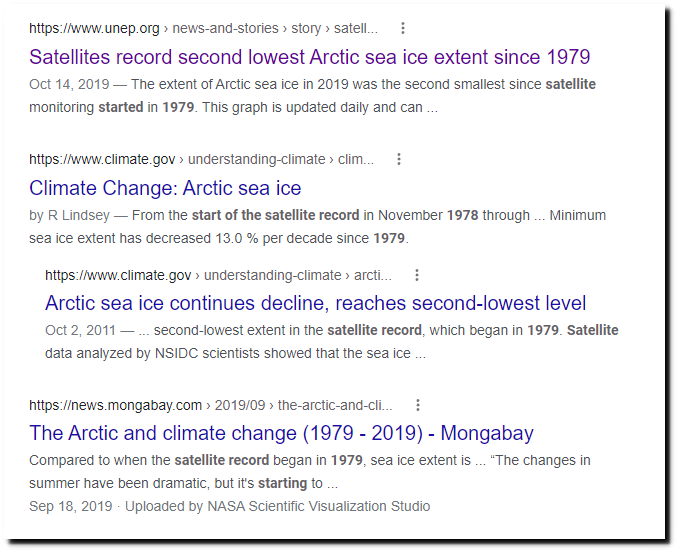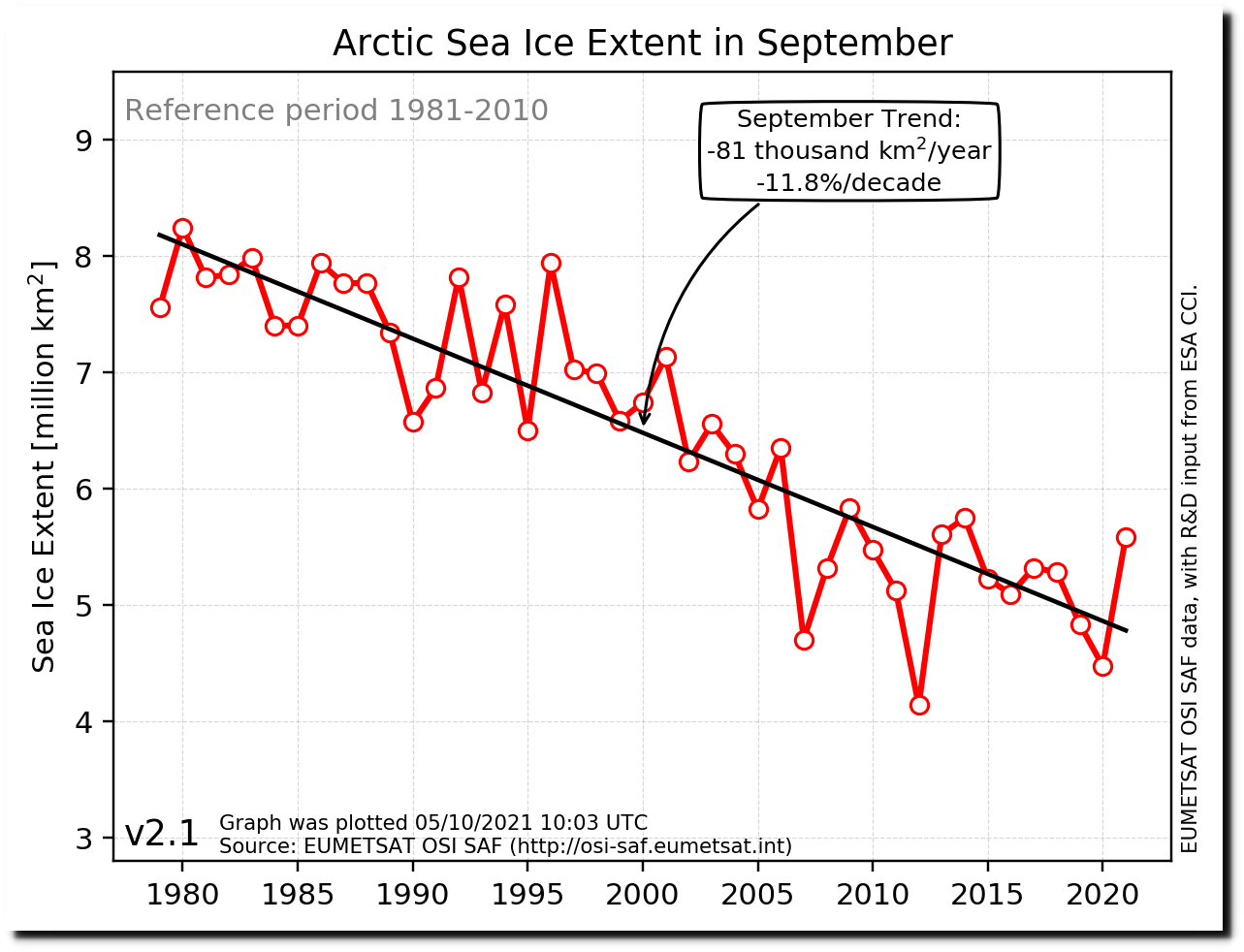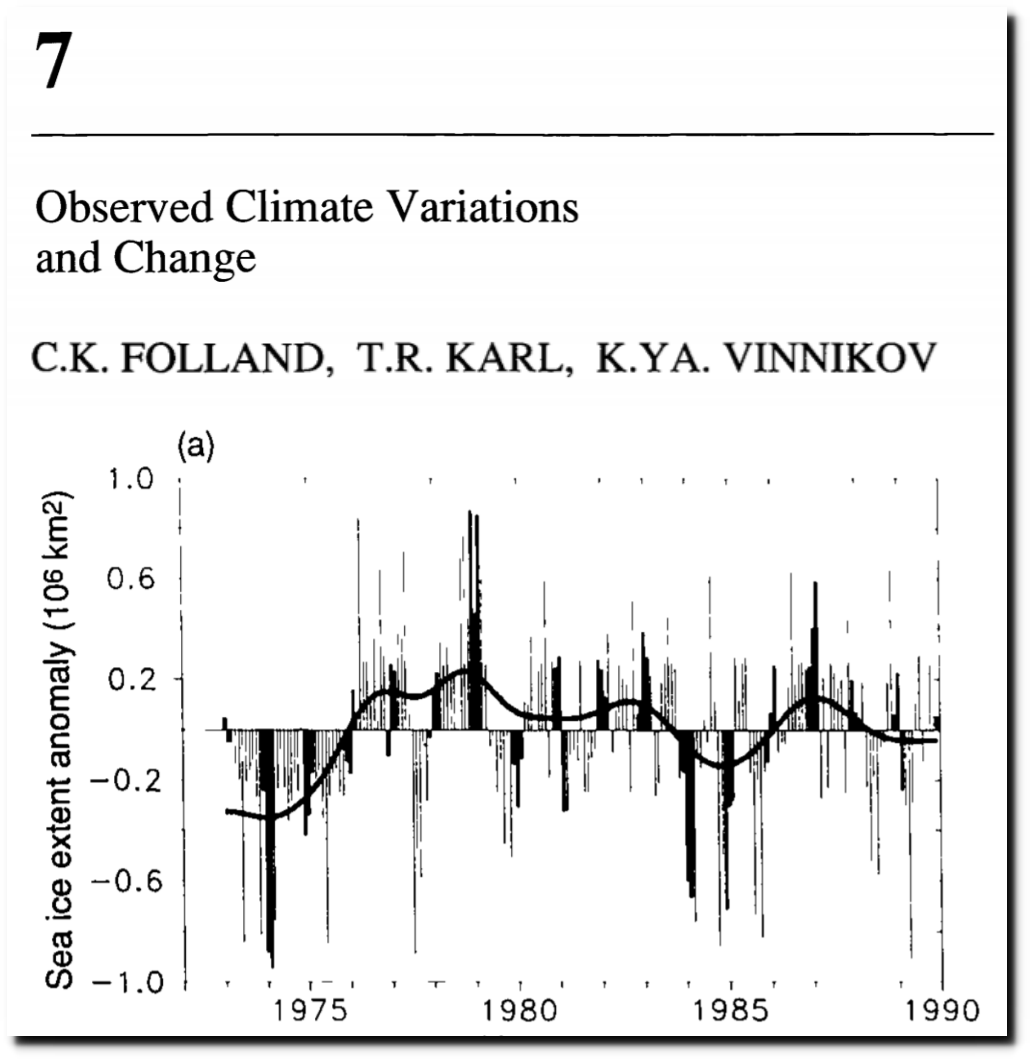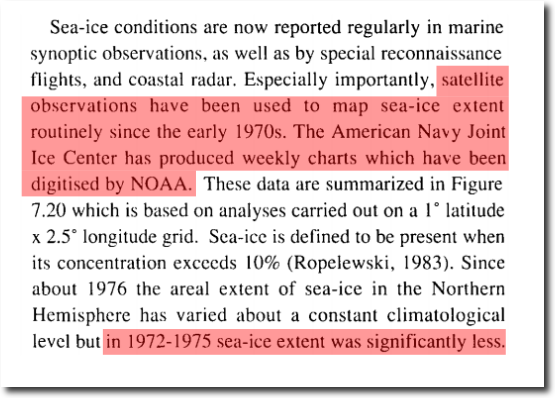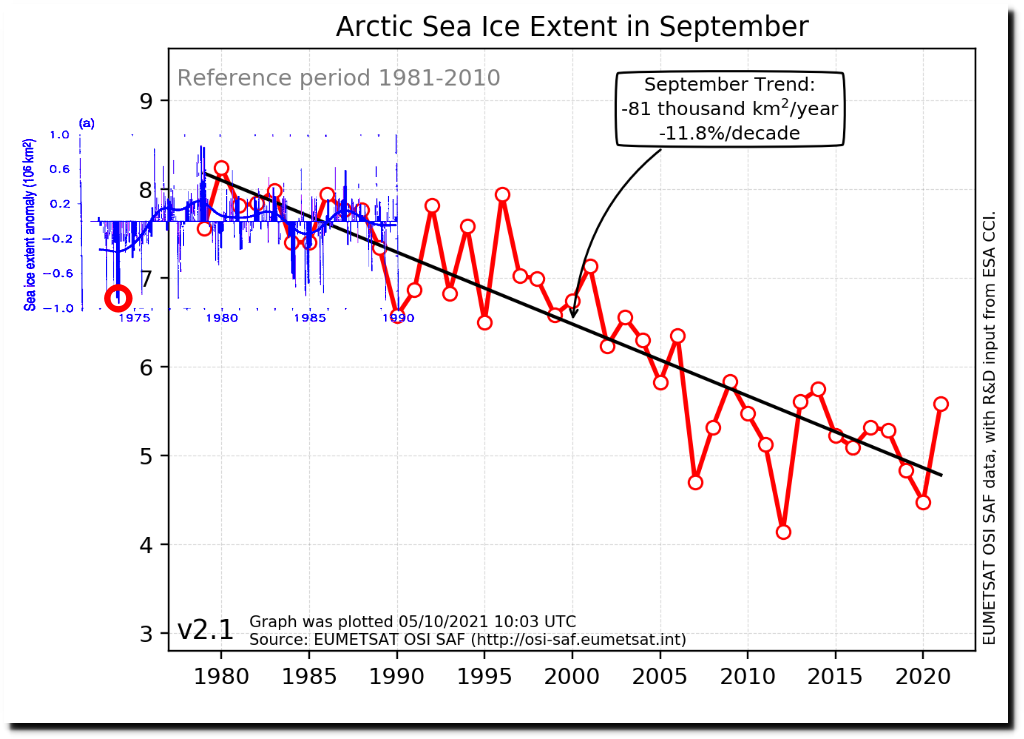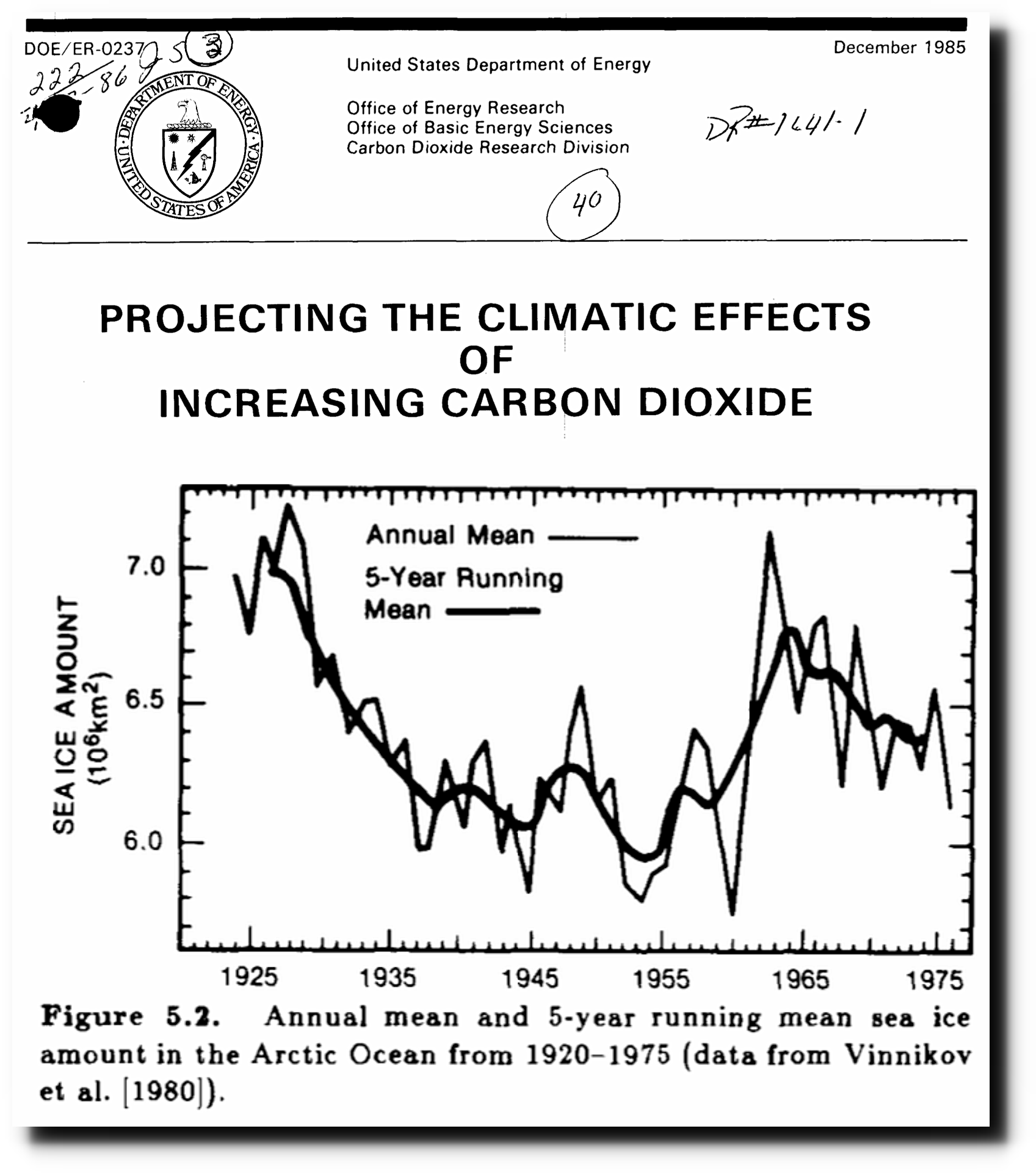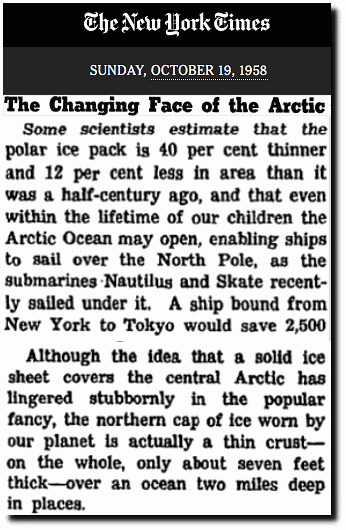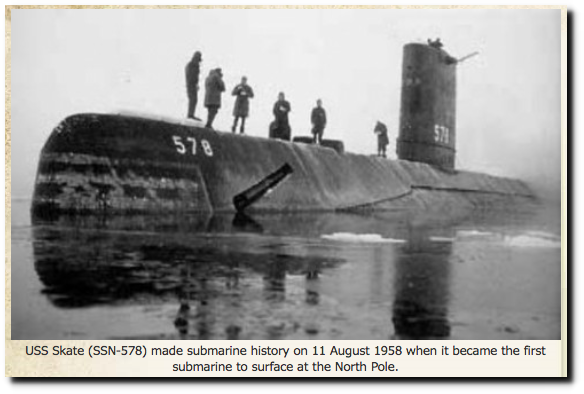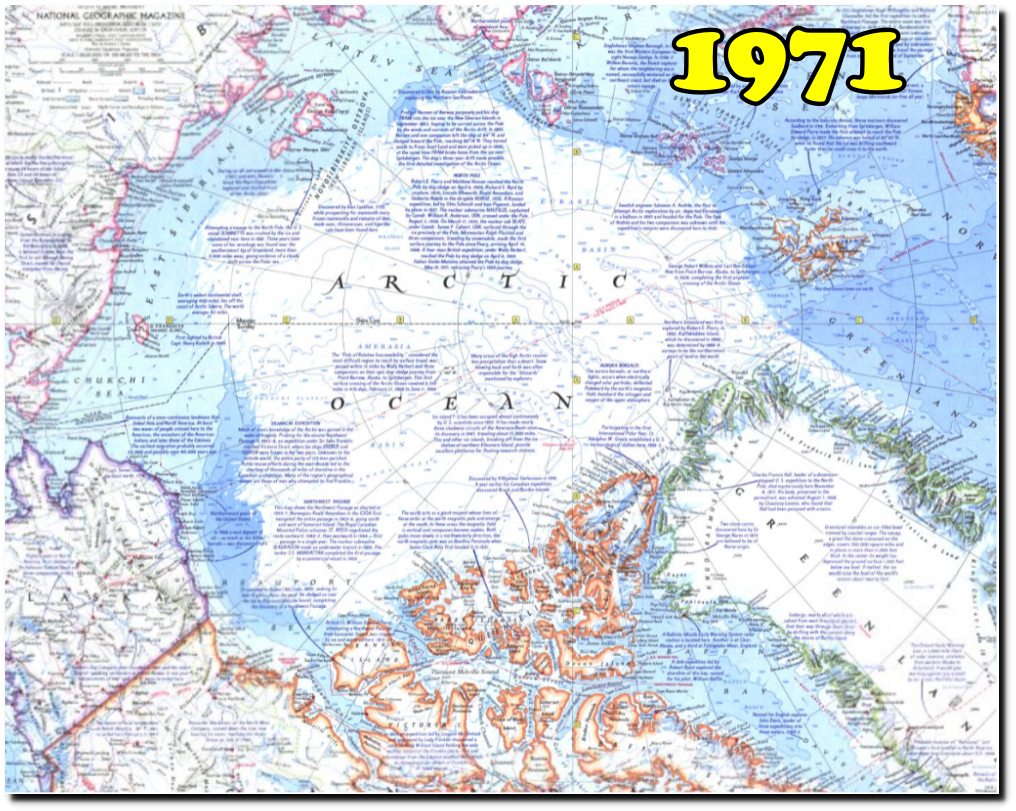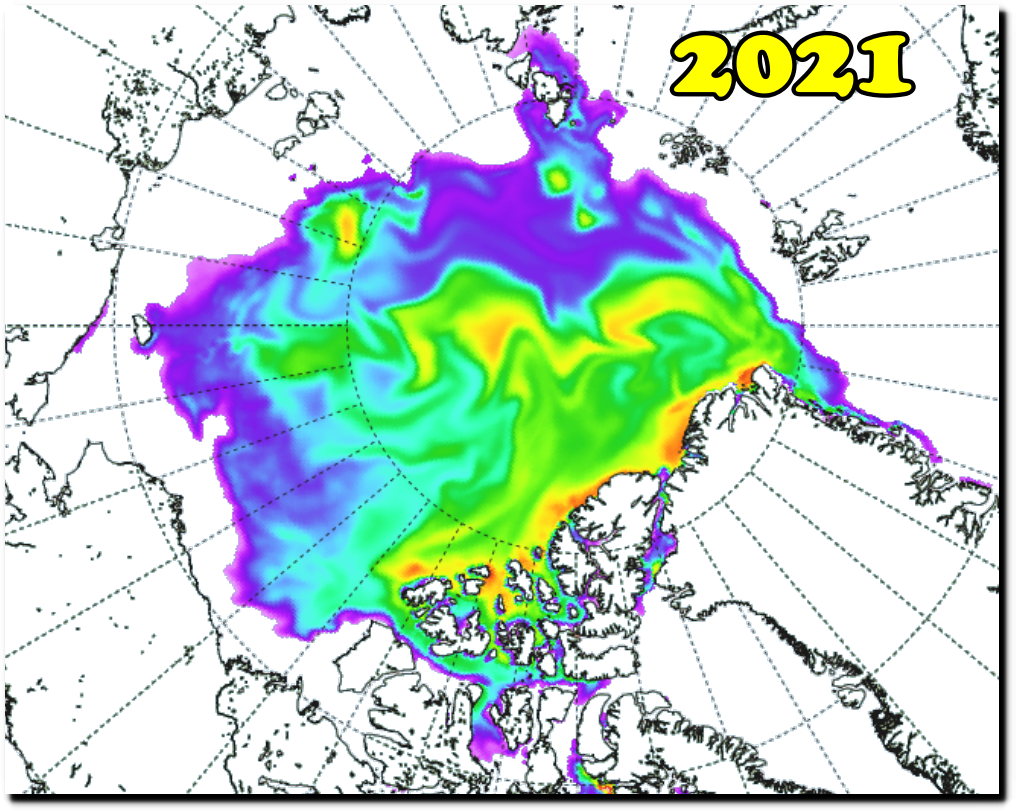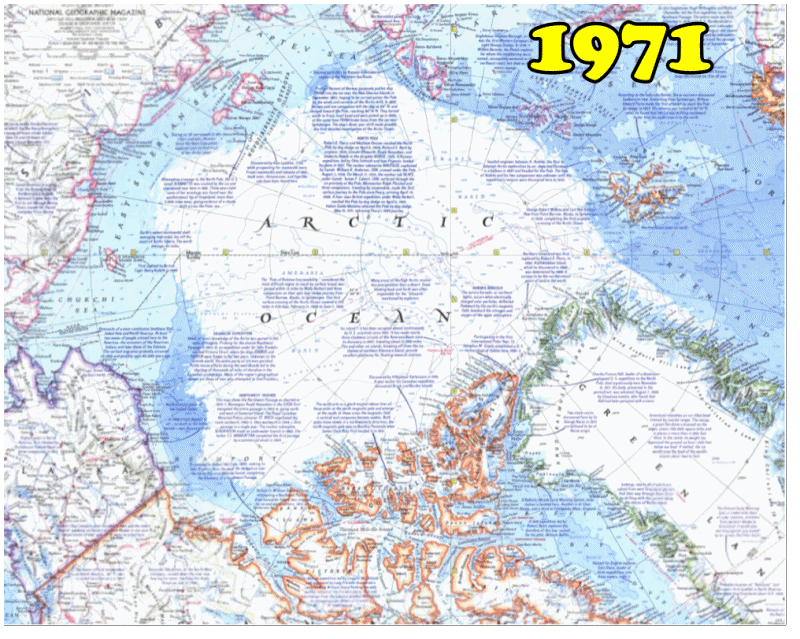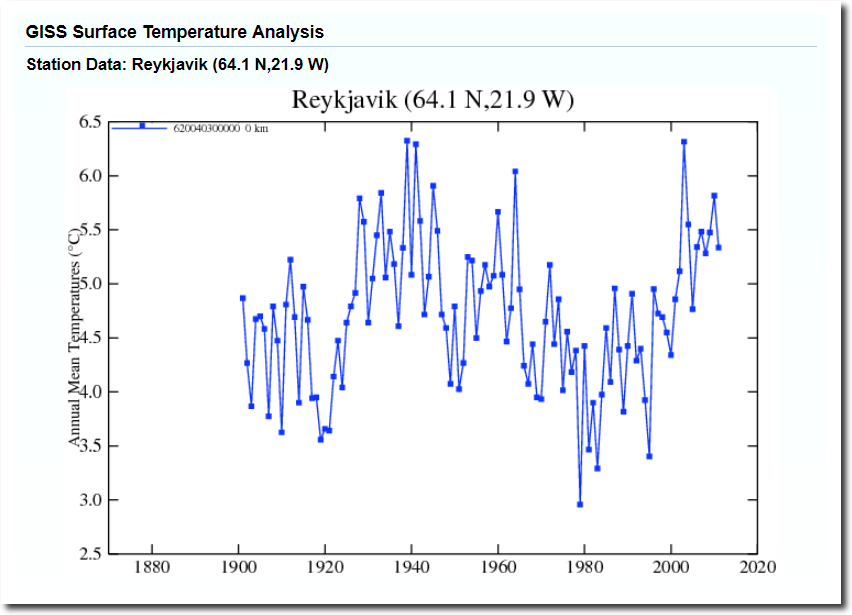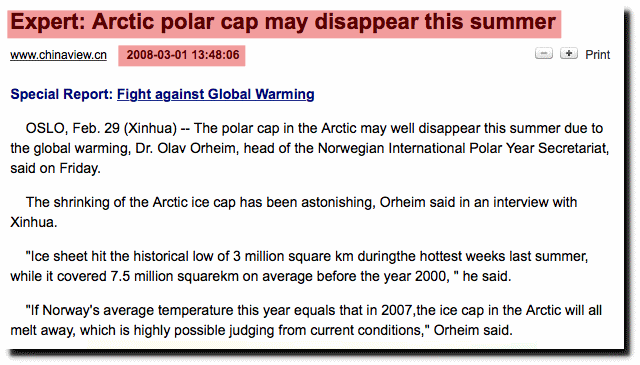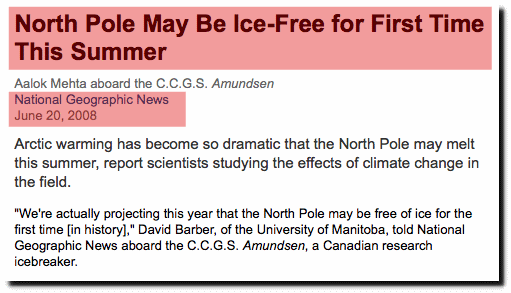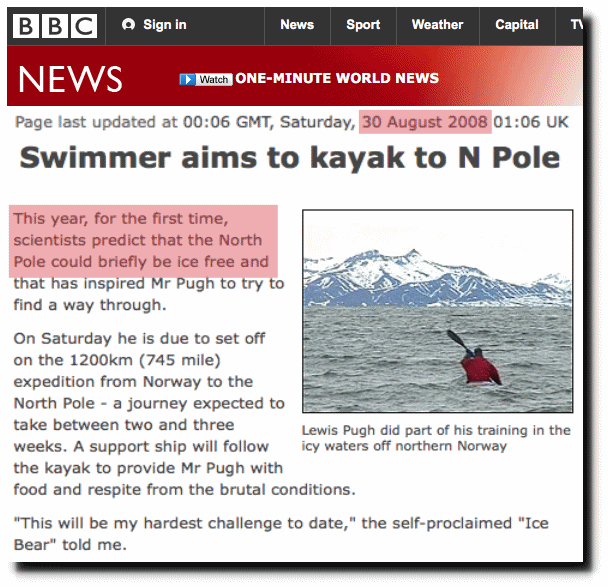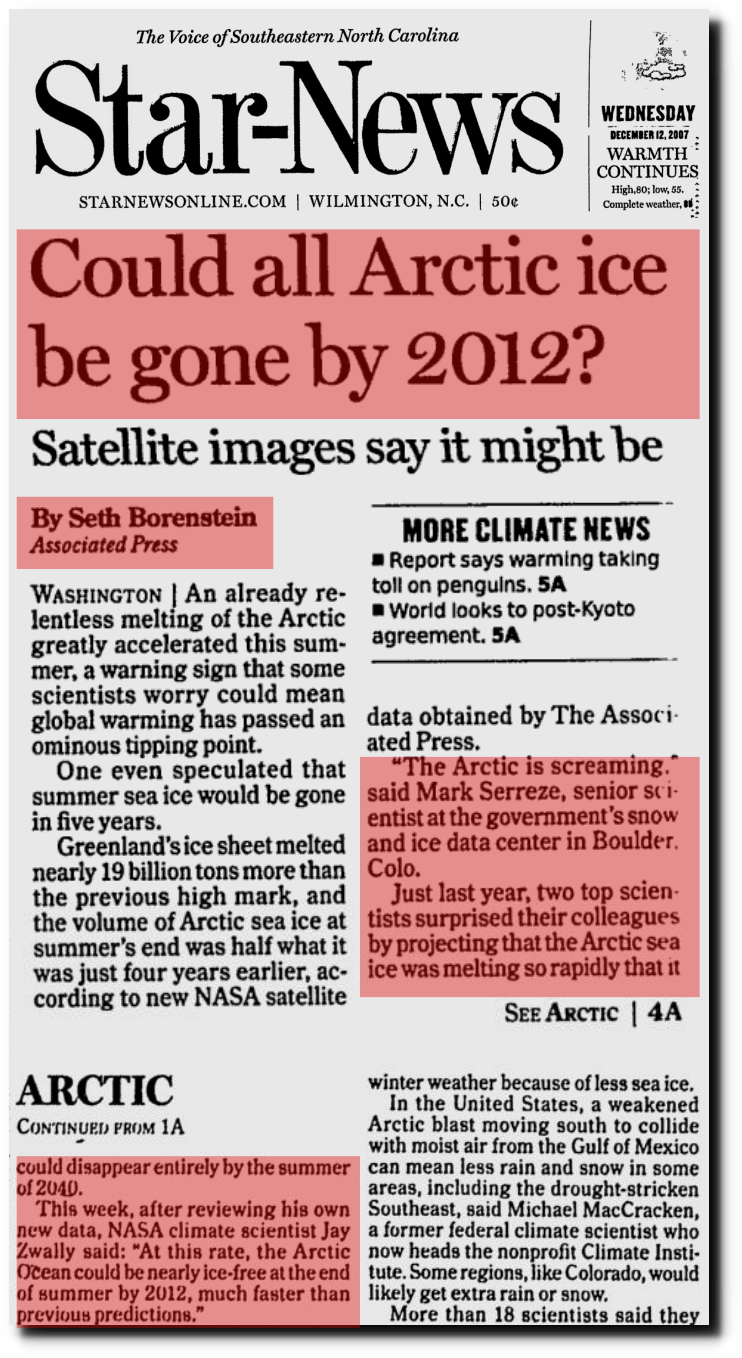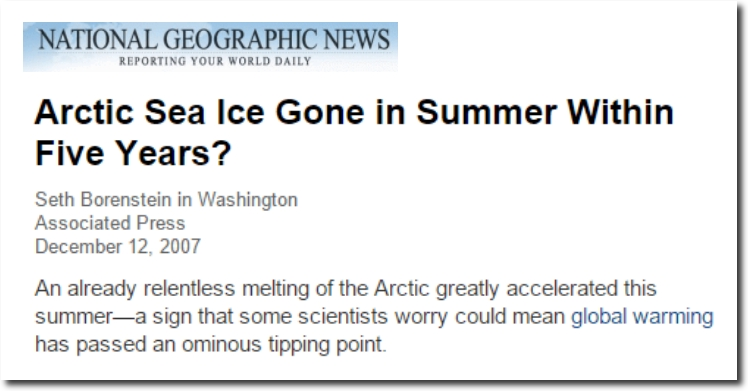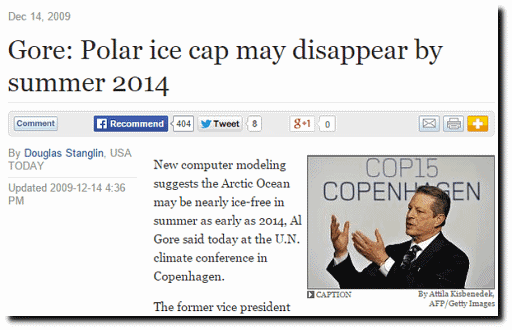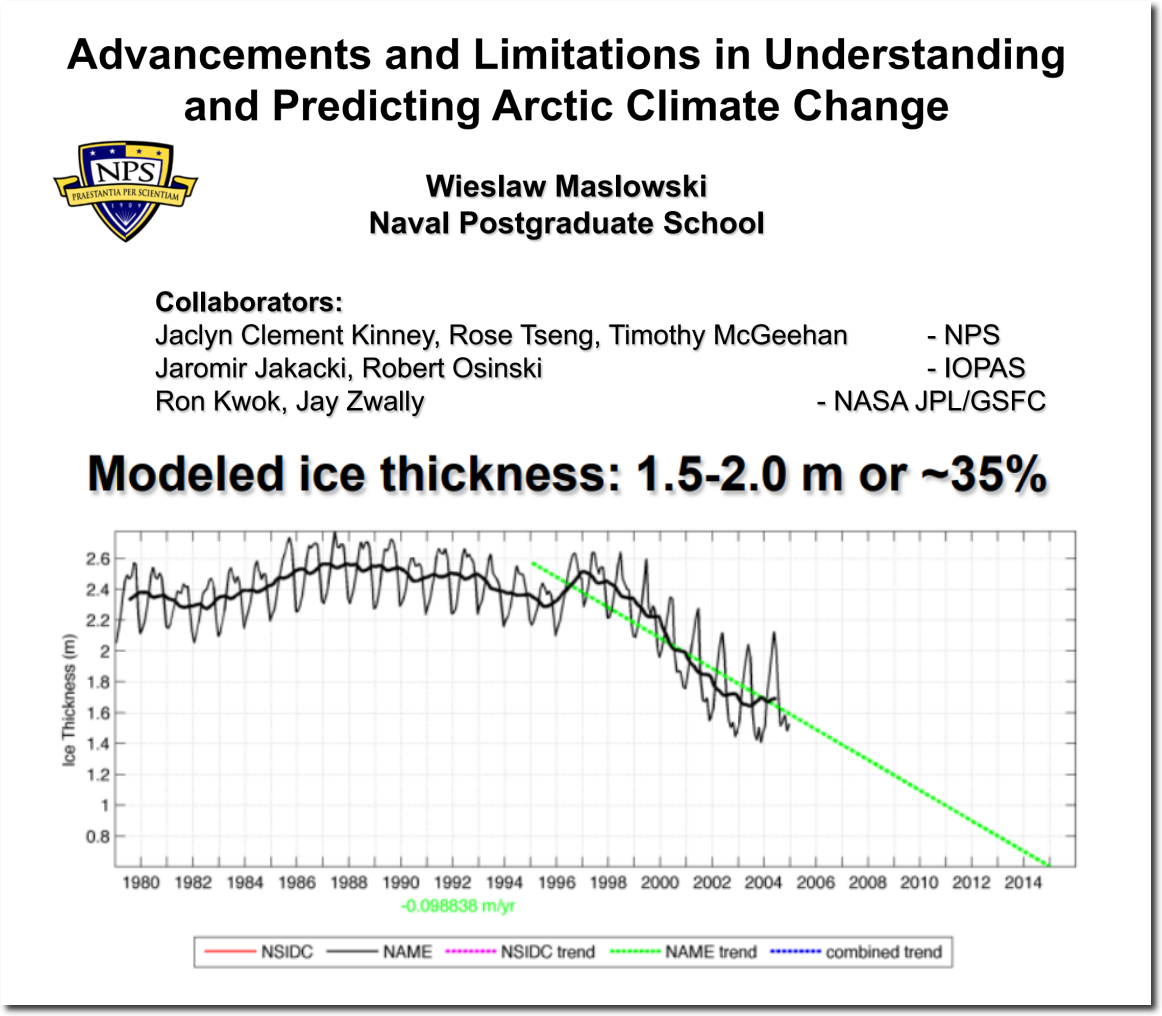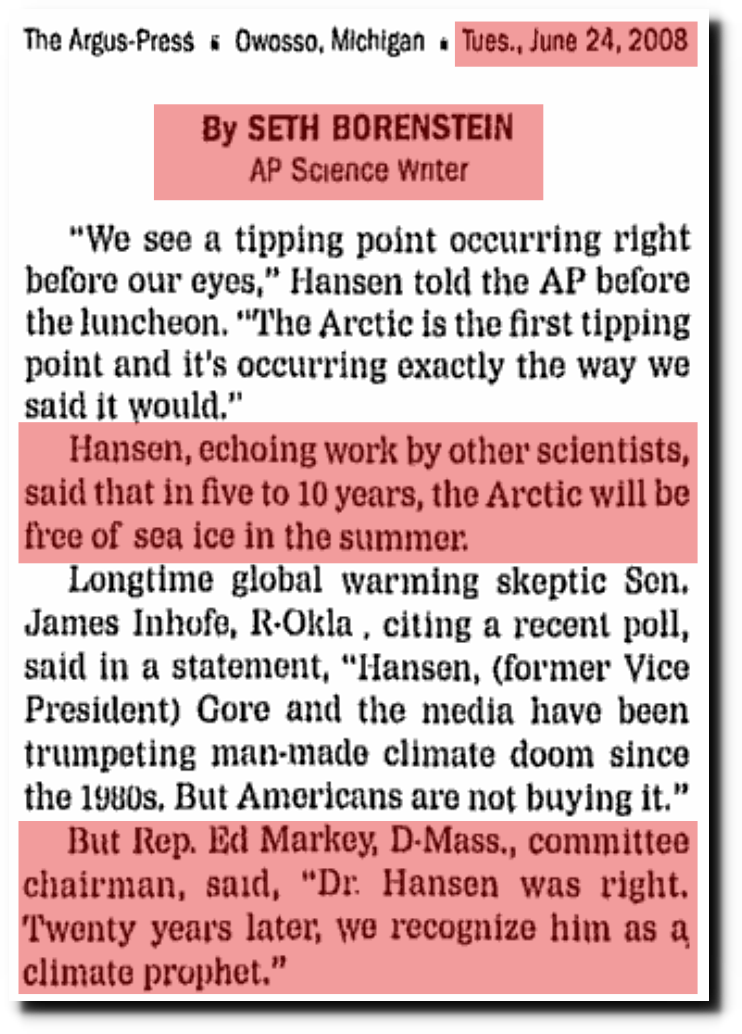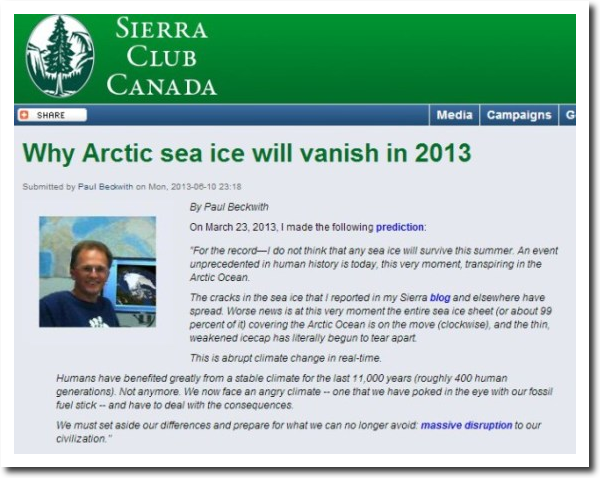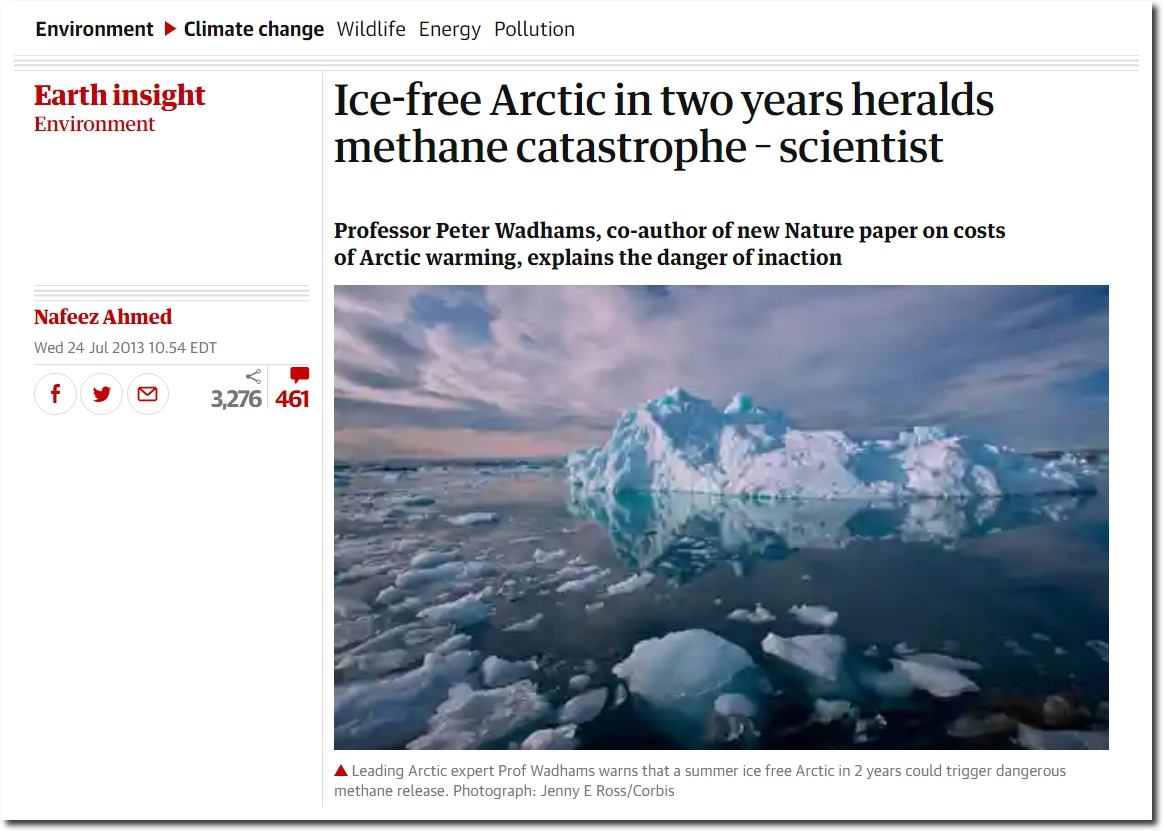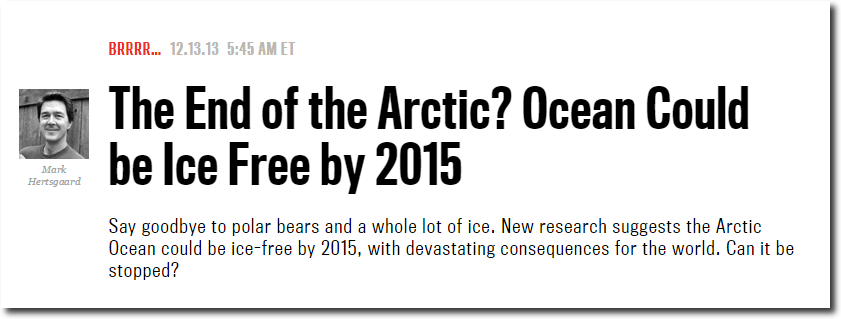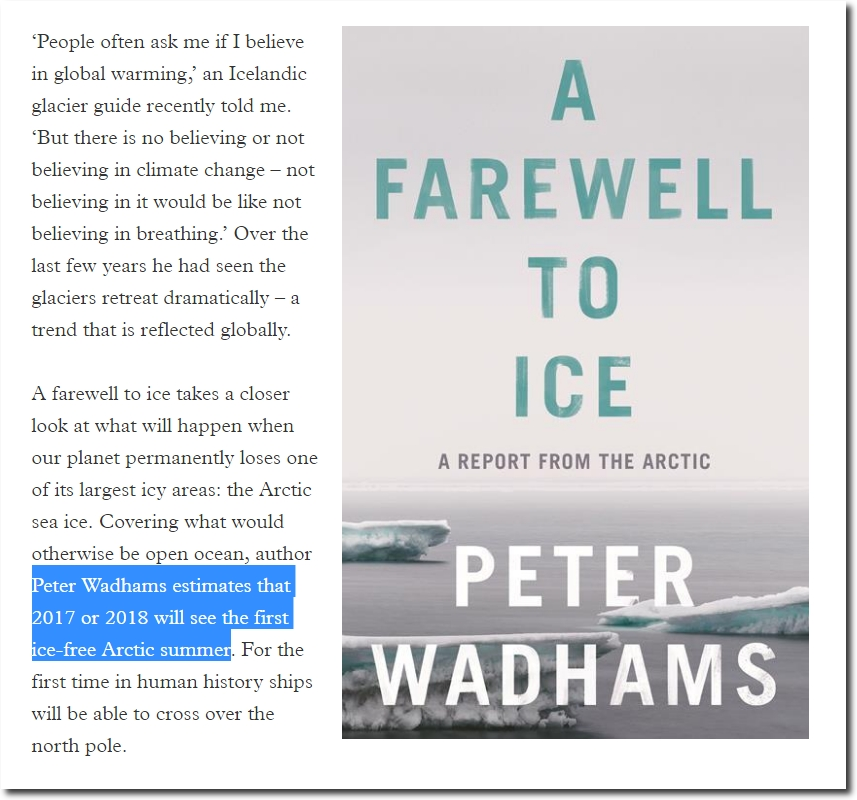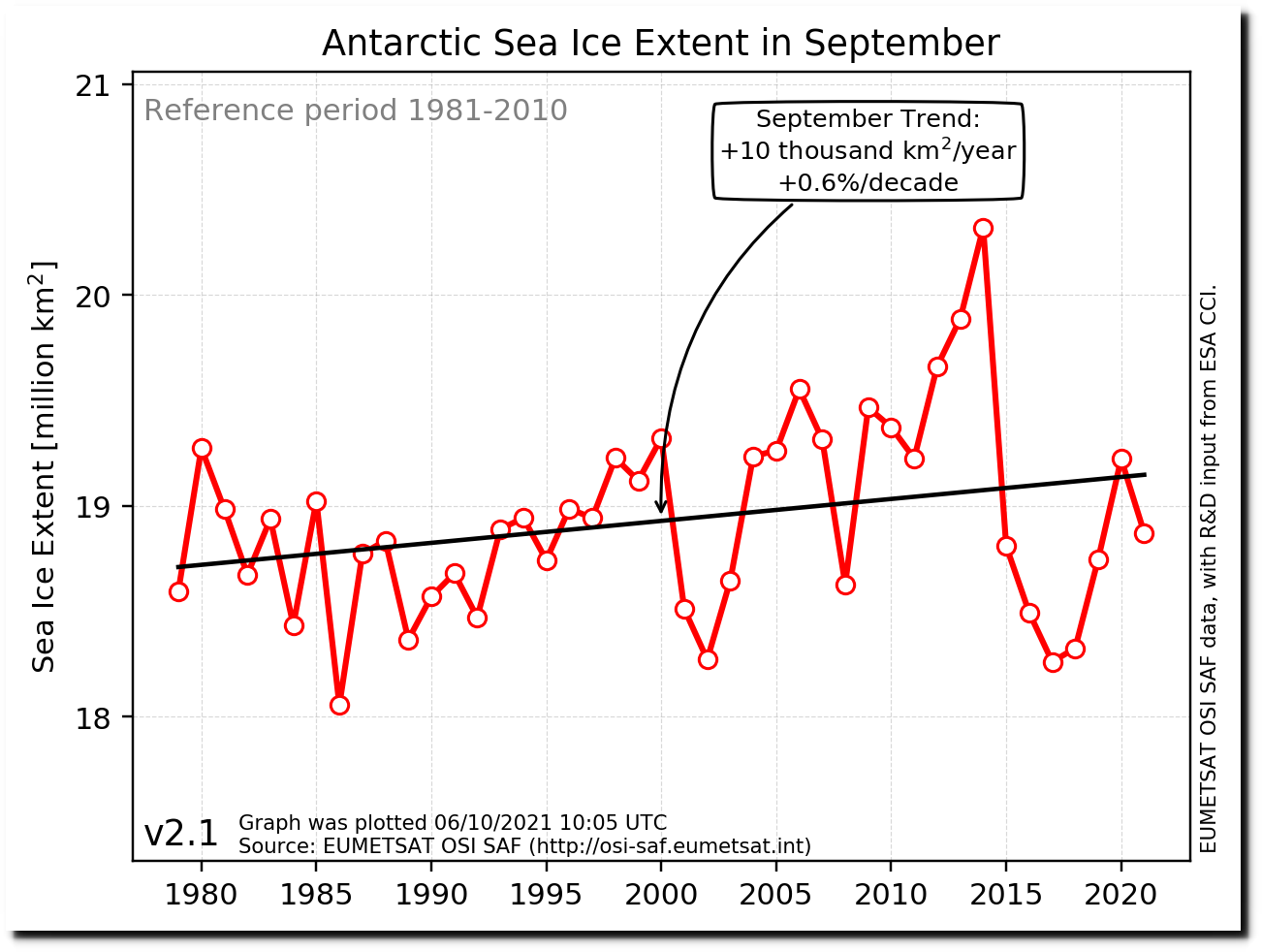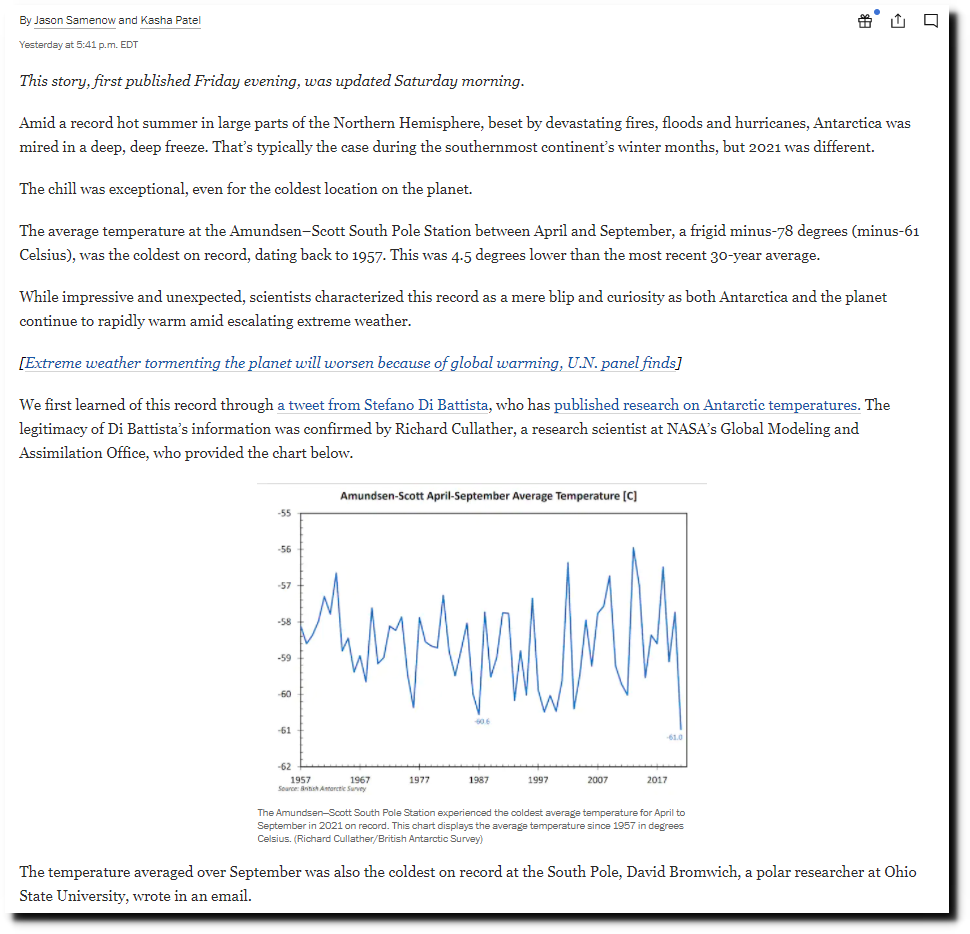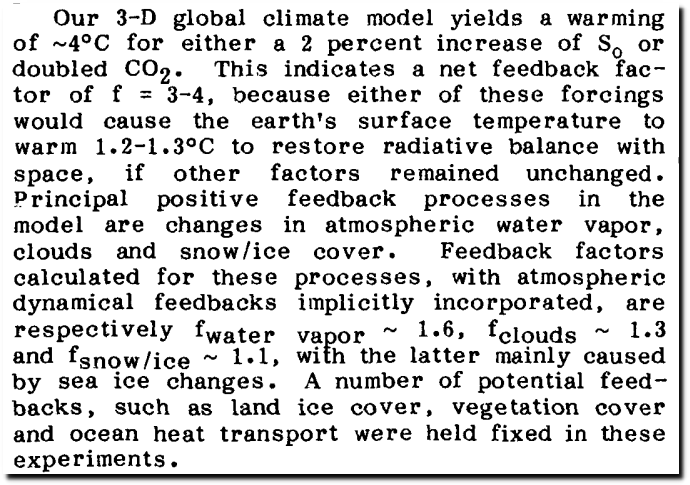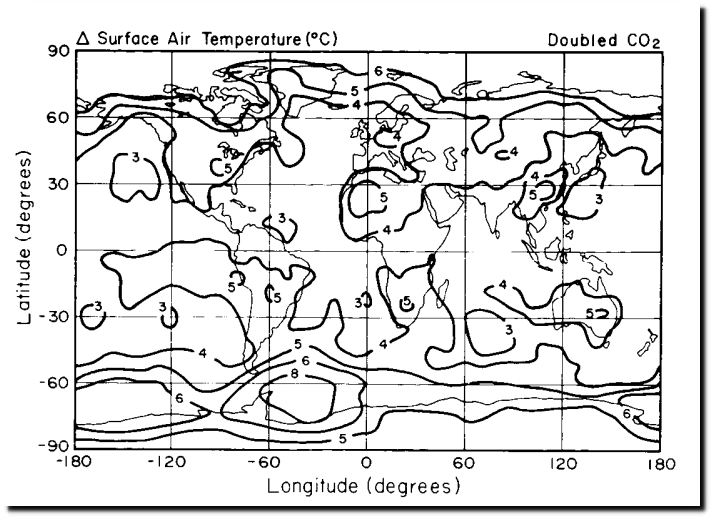Government experts say the satellite record began in 1979, and Arctic sea ice has been declining linearly since then.
osisaf_nh_sie_monthly-prev.png (1255×954)
But thirty years ago, they had a completely different story.
Combining the two graphs, it becomes clear why they are hiding the pre-1979 data.
JPRS ID: 9304 USSR REPORT METEORLOGY AND HYDROLOGY
The 1985 DOE report showed Arctic sea ice extent back to the 1920’s, and ice extent was much lower in the 1950s.
Projecting the climatic effects of increasing carbon dioxide
Low extent during the 1950s was confirmed by historical records.
The Changing Face of the Arctic; The Changing Face of the Arctic – The New York Times
There has bene no trend in Arctic sea ice over the past fifteen years.
ftp://osisaf.met.no/prod_test/ice/index/v2p1/nh/osisaf_nh_sie_daily.txt
Arctic ice cover is about the same as 50 years ago.
NatGeoMaps/mapviewer.html?mapName=1971_10_Arctic Ocean_side 1
FullSize_CICE_combine_thick_SM_EN_20211005.png (1337×1113)
NatGeoMaps/mapviewer.html?mapName=1971_10_Arctic Ocean_side 1
Cherry-picking the start year of 1979 as the coldest year on record in Iceland.
Our top experts said the Arctic would be ice-free by 2008.
Expert: Arctic polar cap may disappear this summer_English_Xinhua
North Pole May Be Ice-Free for First Time This Summer
BBC NEWS | UK | Swimmer aims to kayak to N Pole
Star-News – Google News Archive Search
Arctic Sea Ice Gone in Summer Within Five Years?
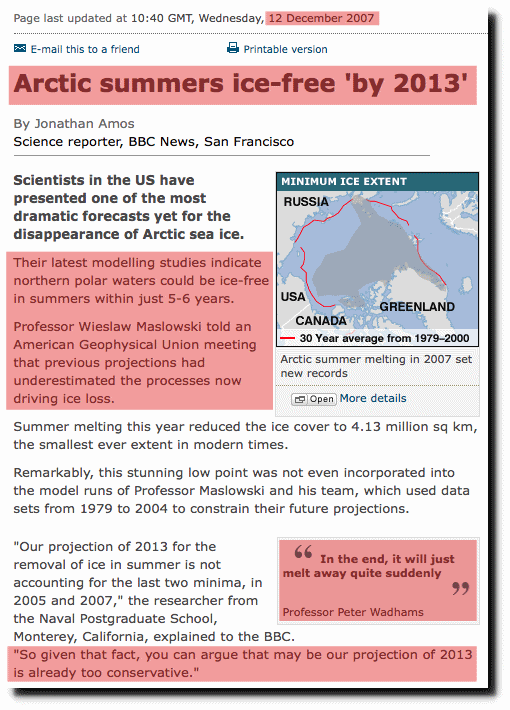
BBC NEWS | Science/Nature | Arctic summers ice-free ‘by 2013’
Gore: Polar ice cap may disappear by summer 2014
The Argus-Press – Google News Archive Search
Why Arctic sea ice will vanish in 2013 | Sierra Club Canada
Ice-free Arctic in two years heralds methane catastrophe – scientist | Environment | The Guardian
The End of the Arctic? Ocean Could be Ice Free by 2015 – The Daily Beast
A farewell to ice | Review | Chemistry World
And President Obama’s science adviser predicted ice-free winters.
…if you lose the summer sea ice, there are phenomena that could lead you not so very long thereafter to lose the winter sea ice as well. And if you lose that sea ice year round, it’s going to mean drastic climatic change all over the hemisphere.
Greenpeace cancelled Christmas in 2013.
Meanwhile, Antarctic sea ice has been growing – the exact opposite of what James Hansen predicted.
osisaf_sh_sie_monthly-prev.png (1274×954)
The South Pole just had its most severe cold season on record – The Washington Post
In 1984, NASA’s James Hansen predicted 4C global warming and 5-8C warming in Antarctica.

